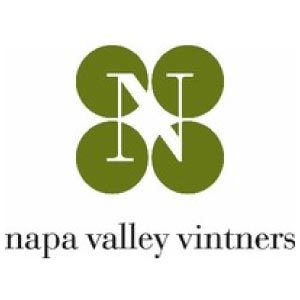
Ask the Vintners: Questions about Napa Green
We all care about the quality of life in Napa Valley and want to be good stewards of our land and environment. This month’s Ask the Vintners column explores the Napa Green environmental certification program for local vineyards and wineries, one of the ways the wine community is working to preserve Napa Valley for future generations.
What is Napa Green?
Napa Green is a comprehensive environmental certification program for vineyards and wineries in Napa Valley. It’s one of the most comprehensive environmental accreditations in the wine industry. The program takes a soil to bottle approach, integrating sustainable management practices at every step of the winemaking process. Napa Green Land and Winery owners are independently certified by third-party entities.
What is the difference between Napa Green Land and Napa Green Winery?
The Land program works with fish friendly farming, LandSmart and Napa Valley property owners to assess their whole parcel and develop a custom farm plan. Each plan must meet and exceed environmental compliance requirements, reduce soil loss and preserve and restore sensitive habitats.
The winery program works with producers to help them understand their water and energy use and waste management. Each participant receives an audit and detailed report to help them conserve resource use at their facility.
How did Napa Green get started?
In 1998 the Environmental Protection Agency declared the Napa River impaired and the State Water Board set reduction standards for “Total Maximum Daily Load” or TMDL of fine sediment into the river. In response, vintners, growers and environmental leaders representing more than 20 nonprofits and regulatory agencies worked in partnership to develop Napa Green Certified Land. The first property was certified in 2004.
In 2007, building on the success of the Land program, the Napa Valley Vintners (NVV) collaborated with Napa County and the California Green Business Program to develop the Napa Green Certified Winery program, creating a comprehensive, soil to bottle sustainability certification.
Is Napa Green a program of the Napa Valley Vintners?
The NVV helped develop the Napa Green program and is one of its greatest champions, but it is a collaborative effort and all certifications are completed by independent, third-party entities. In support of its commitment to the program, in 2015 the NVV set a goal that all its eligible members (those who own more than 5 acres of vineyard, a winery or both) will be in the program by the end of 2020. To date more than 50 percent of NVV members are in Napa Green.
What has the program achieved so far?
There are more than 70,000 acres in the Napa Green Land program and 45,000 total acres have been certified. More than half of Napa County’s vineyard acreage is Napa Green Land Certified. This represents 23,000 vineyard acres across nearly 400 properties. Roughly 150 miles of year-round creeks and rivers have been evaluated and improved.
On the winery side, more than 60 Napa County wineries are Napa Green Winery Certified and an additional 60 are pending certification.
What does this mean for local residents?
Napa Green builds on the history of land stewardship by Napa Valley vintners and growers. This history includes, in part:
- The Napa Valley Agricultural Preserve, the first of its kind in the U.S., this year celebrating its 50th anniversary.
- Nearly 90 percent of Napa County is under permanent or high levels of protection from development, thanks to the Ag Preserve, land conserved in perpetuity by the Land Trust of Napa County and numerous other regulations that protect our environment.
- Miles of the Napa River and creeks that feed into it have been restored through public-private partnerships, including grape growers giving up valuable vineyard acreage, to preserve and enhance our waterways and riparian habitats.
If I’m a wine lover, where do I learn more?
A fun way to learn more about the program is by visiting some Napa Green Certified producers. Find wine tasting itineraries and get general information about the program at napagreen.org. Ask the Vintners is a monthly column written by the Napa Valley Vintners nonprofit association. Submit your questions to ask@napavintners.com and learn more at napavintners.com.
Napa Green Facts
- Napa Green was started in the late 1990s by more than 20 industry and environmental groups, along with government agencies, looking to improve the quality of the Napa River.
- The first Napa Green Land Certification was in 2004 and the first Napa Green Winery Certification was 2008.
- Today, more than 70,000 acres in Napa County are in the Land program.
- Half of all Napa County vineyard acreage is Napa Green Certified.
- More than 60 wineries are Napa Green Certified and an additional 60 are pending certification.
- The NVV is more than halfway to meeting its goal that all eligible members will be in the program by 2020.
Making the commitment to third party certification takes time and effort, but it is worth it to demonstrate our commitment to the community and to protect our watershed, our land and the air we breathe.
- Susan Boswell, Chateau Boswell Winery
